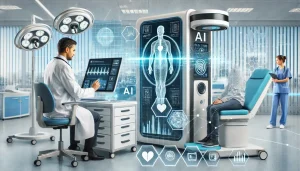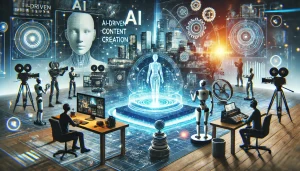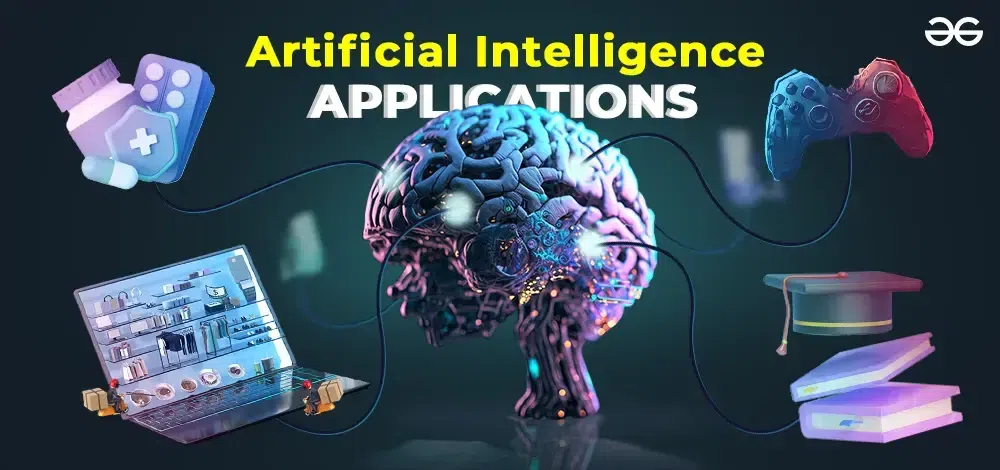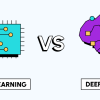Artificial Intelligence (AI) has moved from science fiction into the heart of everyday life, and 2025 is proving to be a groundbreaking year.
Today, AI applications are transforming industries, streamlining operations, enhancing creativity, and even making our daily tasks easier.
From healthcare to entertainment, the practical use of AI is no longer a peek inti the future—it’s happening all around us.
Businesses, governments, and individuals are embracing AI-driven technologies to solve problems faster, make smarter decisions, and improve general efficiency.
We’ll explore the top 10 real-world applications of AI in 2025, highlighting how this technology is creating tangible impacts across sectors.
Whether you’re a tech enthusiast or simply curious about how AI is shaping your world, these examples show that artificial intelligence is more accessible and vital than ever.
1. AI in Healthcare: Diagnosis and Treatment

AI is revolutionizing healthcare with faster, more accurate diagnoses.
Machine learning models analyze medical images, predict disease progression, and assist doctors in personalizing treatment plans.
Example: AI algorithms now help detect early signs of cancer and rare diseases with greater precision than traditional methods.
2. Autonomous Vehicles: Safer Roads Ahead
Self-driving cars are no longer experimental.
In 2025, autonomous vehicles are being used for deliveries, ride-sharing services, and personal transportation, improving road safety and reducing traffic congestion.
Example: AI systems handle navigation, obstacle detection, and accident prevention in real time.
3. AI in Customer Service: Chatbots and Virtual Assistants
Businesses are using AI-driven chatbots to deliver 24/7 customer service.
These virtual assistants provide instant support, answer FAQs, and even handle complex inquiries with natural language processing.
Example: Companies like Amazon and banks worldwide are enhancing customer satisfaction through AI-powered interactions.
4. Personalized Education with AI Tutors
The education sector is embracing AI tutors that adapt to each student’s learning style and pace.
AI analyzes student data to personalize lessons, suggest resources, and even predict academic outcomes.
Example: Online learning platforms now offer AI-driven feedback to improve understanding and retention.
5. AI in Agriculture: Smarter Farming
Farmers are using AI to boost crop yields, optimize irrigation, and manage livestock more efficiently.
Drones and sensors powered by AI monitor soil health, detect pests, and suggest timely interventions.
Example: Smart agriculture solutions are helping to feed growing populations sustainably.
6. AI in Finance: Fraud Detection and Robo-Advisors
The financial industry heavily relies on AI for fraud detection, risk assessment, and investment advice.
Machine learning models identify suspicious transactions and provide personalized financial planning.
Example: Robo-advisors like Betterment and Wealthfront use AI to optimize investment portfolios.
7. Entertainment and Media: Content Creation

(Image via Getty)
AI tools now assist in creating music, movies, news articles, and social media content.
Algorithms can compose symphonies, generate video scripts, and even mimic famous artists’ styles.
Example: AI-generated podcasts and short films are gaining popularity, offering fresh creative possibilities.
8. AI in Cybersecurity: Predicting Threats
In 2025, cybersecurity heavily depends on AI to predict, detect, and neutralize threats before they cause damage.
AI systems continuously monitor network traffic, identify anomalies, and automate incident responses.
Example: Companies like CrowdStrike use AI to provide proactive protection against cyberattacks.
9. Retail and E-commerce: Hyper-Personalization
AI is reshaping the shopping experience by offering hyper-personalized recommendations, dynamic pricing, and smart inventory management.
Retailers leverage customer data to tailor marketing campaigns and optimize supply chains.
Example: E-commerce giants like Amazon use AI to anticipate buying patterns and suggest products.
10. Smart Cities: AI for Urban Planning
Cities worldwide are deploying AI to improve infrastructure, reduce energy consumption, and enhance public services.
AI helps in managing traffic flow, waste collection, and even public safety initiatives.
Example: Singapore and Dubai are leading examples of smart cities using AI for better urban living.



